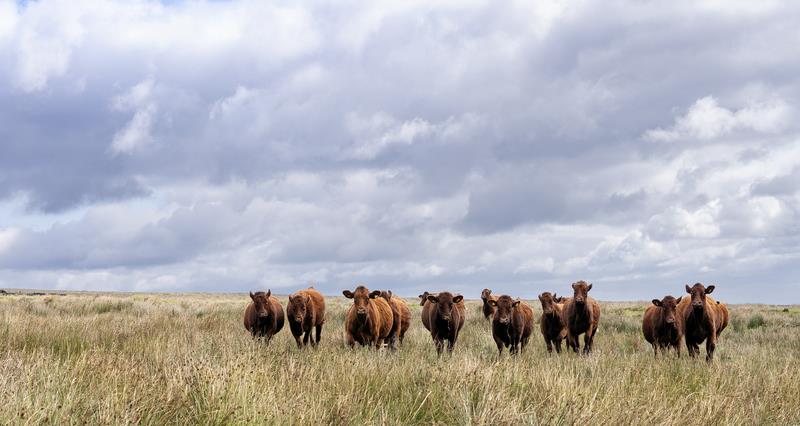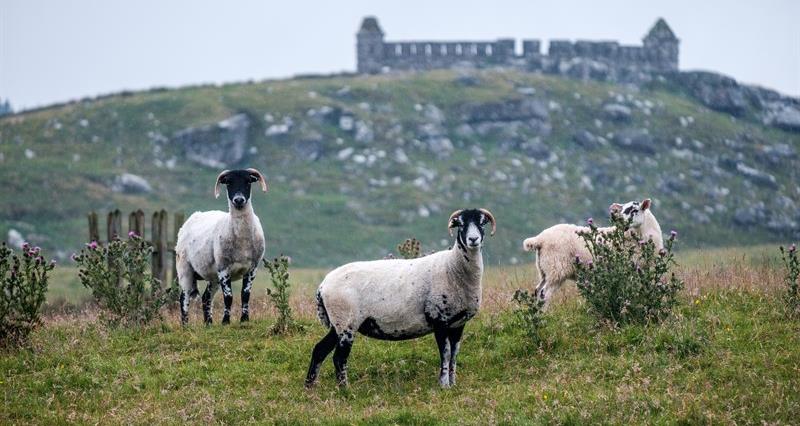After months of lobbying the new government, the NFU has welcomed Defra's acknowledgement of the challenges that upland farmers are facing.
During the House of Commons agriculture debate earlier this week, Defra Secretary of State Steve Reed recognised the need for a ‘fair approach for all farmers’.
“Upland farmers have been left behind,” he said. “Farmers in the uplands have been losing their basic payments each year, but have not been able to access new schemes.
“We have arrived in office to find no credible plan to address that, leaving thousands of the most remote and isolated farmers without a clear path for their families, businesses or communities. We need a fair approach for all farmers.”
Ensuring uplands is on the political agenda
The NFU has been actively lobbying the government on the challenges.
In August, NFU Deputy President David Exwood met with Defra Food Security Minister Daniel Zeichner and Farming and Countryside Director Janet Hughes on NFU member Helen Drinkall's farm visit to give the Defra team the opportunity to see the realities of farming in the uplands and the current barriers of the SFI for upland businesses.
David and NFU members also met with Rural Payments Agency Chief Executive Paul Caldwell and Defra Permanent Secretary Tamara Finkelstein, along with Janet Hughes, at the Westmorland County Show in September, highlighting the financial losses of more than £10 million in support to upland farmers in the Lake District.
“We have arrived in office to find no credible plan to address that, leaving thousands of the most remote and isolated farmers without a clear path for their families, businesses or communities. We need a fair approach for all farmers.”
Defra Secretary Steve Reed
Asks of government
For ELMs to be a success in the uplands the NFU is calling for:
- The creation of an uplands working group to allow further discussions about how upland businesses are part of the solution to Defra’s environmental ambitions.
- Defra to undertake and publish an impact assessment of the current ELMs offer and a transition for upland businesses from direct payments.
- Clarification on ‘heavy sheep’ on the hills and how this limits upland business’s ability to apply for SFI.
- A clear strategy from Defra on its vision for the uplands and how businesses remain viable, profitable businesses.
- Wider SFI options available to upland farmers to be detached from destocking and shepherding actions (UPL1-3 and UPL7-10)
- Defra to give allowances for supplementary feeding within moorland options (UPL1-3, UPL7-10). Currently only mineral licks are allowed.
- Moorland stocking actions (UPL1-3) to be based on an average stocking density rather than a maximum rate.
Call for HLS payments uplift
The NFU is calling on a mechanism to allow farmers with existing environmental schemes, such as HLS (Higher Level Schemes) or Mid-Tier Countryside agreements, to transfer over into these new schemes so they can work better for their farm.
This is why the NFU is asking for an uplift in HLS payments to help close the funding gap and prevent those who have been pro-active in engaging in agri-environmental schemes from being penalised.
An increased budget is vital
With the Autumn Budget due at the end of October, the NFU is encouraging members to join our call for the government to deliver a multi-annual agriculture budget of £5.6 billion to secure a thriving future for all farming and growing businesses.
MPs agree that food security is national security, but British farmers and growers need the government to invest in an increased agriculture budget to give certainty to farming businesses.
Use our campaigning letter template to write to your MP to tell them why the agriculture budget is so important to their businesses.



